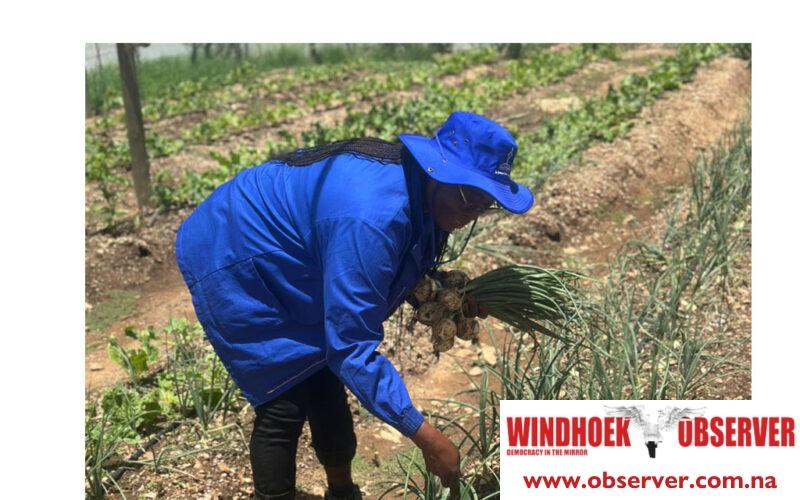Stefanus Nashama
Urban gardeners in informal settlements face an uphill battle with no direct support from the Ministry of Agriculture, Water and Land Reform.
The ministry’s spokesperson, Jennifer Paulus, told the Windhoek Observer last week when responding to calls for assistance from residents struggling to sustain their backyard gardens.
“We do not have a hand in supporting gardening in the informal settlement. I think that is the responsibility of the Windhoek municipality,” she said.
Wilhelmina Iikela, a resident of the Goreangab informal settlement, has brought attention to the challenges faced by urban gardeners in Namibia who make a living from the gardens.
The recent floods destroyed her garden, leaving her desperate for help.
She only relies on the garden for both sustenance and income to support her family.
“I need help. I only survive in the garden. I know the government cannot assist all of us, but I am affected. There are also some people who just come and harvest my crops without my permission because there is no fence to protect them,” she explained.
In the past, former Samora Machel constituency councillor, Samuel Shivute helped Iileka fence the garden, but the floodwaters washed it away.
Despite promises from government officials to assist her, Iikela said no real support materialised.
“They used to visit my garden, promising to give support, but nothing has come from them,” she said.
Her struggle is not unique.
Andreas Sakeus, another resident, is also appealing for help.
“I need seeds to do more crops. If the government can support us, we will have our food to meet ourselves halfway,” said Sakeus.
Many people in the informal settlement depend on backyard gardens for sustenance, yet their efforts received little institutional support.
The City of Windhoek spokesperson, Lydia Amutenya, said the municipality supports residents through training programs designed to help them learn how to garden for sustenance.
“The municipality only encourages and educates people on how to garden to assist their families,” she stated.
Amutenya pointed out that land use in informal settlements is a complex issue due to a lack of formal tenure and necessary infrastructure.
“Severe water scarcity poses a significant challenge to agricultural activities in these areas,” she said.
To support urban agriculture, Amutenya said the city has initiated projects such as Farm Okukuna, a community-based urban agriculture program that allows residents, particularly those from vulnerable communities, to engage in sustainable food production.
This project provides training, resources, and space for residents to grow crops using water-efficient and climate-resilient farming techniques.
Nestor Kalola, the constituency councillor for Samora Machel, said many residents in the informal settlement grow crops during the rainy season.
He said that while his office might provide some assistance, not everyone would receive it.
“We are trying to find ways to assist those with backyard gardens, but this process will take some time,” he noted.




